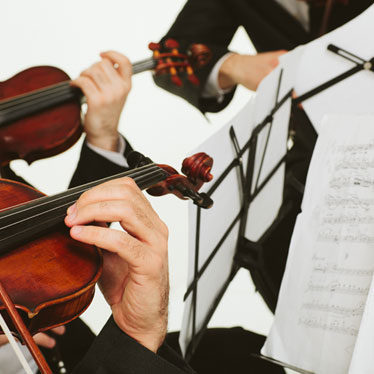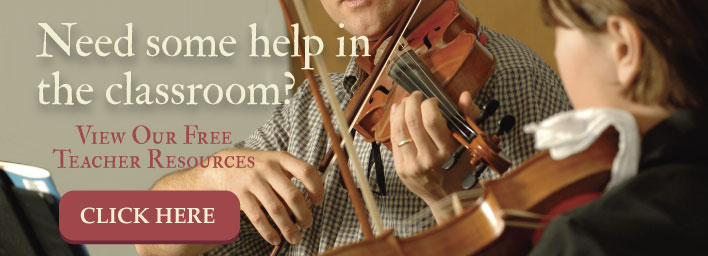How To Handle Rights And Permissions Of Your Music For Performances

Selecting music for a recital or performance is already a challenge. What’s appropriate to the students’ skill level? What will the audience enjoy? What creates a cohesive program? Will I get fined?
Huh?
Yes, there are legal issues around selecting works and performing them publicly. You probably know that already but aren’t clear on the details. Fair enough. When it comes to music and performances, the relevant area of law is copyright and it is confusing. (For our purposes here, we’re sticking to U.S. copyright law.)
Basics of U.S. copyright law and teacher exemptions
A copyright is the exclusive legal right of the copyright owner to the reproduction, publication or sale of a work. The copyright owner may be the creator of the work, or the creator could have sold her copyrights to someone else, like a publisher. The copyright extends to the performance of the work. That means, even if you’ve followed all the copyright laws as regards to providing the sheet music to your students, the question of whether your students can perform that music is an entirely different question of copyright law.
The good news is that U.S. copyright law also provides a “fair use” exemption as regards to performing a copyrighted work. For teaching purposes, there are three exemptions to be aware of:
-
Face-to-face use
This exemption covers in-person teaching activities. If you purchase sheet music for students to learn in class, the students can perform these works in class. This performance exemption applies to a variety of educational contexts, including libraries, workshops, and private lessons.
-
Distance-education
Many schools provide instruction over the Internet. Yay, progress. Because there’s an educational purpose here, it only makes sense there’s an exemption similar to the face-to-face educational use. However, because this performance is necessarily being transmitted digitally, it raises other concerns regarding access to and reproduction of a performance. An institution that provides distance learning should certainly have the technology and security in place to prevent unauthorized access or transmissions of live or recorded performances. In addition, the performance itself has to be essential and integral to the lesson, and the class must be provided by a public or accredited nonprofit institution.
-
Recitals and concerts
This is really what you want to know about, right? There is an exemption, but there are many variables in its application. Furthermore, a performance that doesn’t qualify for an exemption may still go on if you get permission from the copyright holder. Since there’s a lot going on here, let’s break this out into its own section.
Do I need to get permissions to perform a work at my recital or school concert?
To start off, the guidelines discussed below apply to works that still have protected copyright. Works in the public domain can be freely performed without any restriction. That’s what being in the public domain means. As noted above, keep in mind that the sheet music you want to use for a performance may not be in the public domain, even if the underlying work is. Everything that follows here assumes you have legal rights to use and provide the needed sheet music to your students.
OK. Let’s start with schools. There is a specific school concert exemption that applies to education institutions. To qualify for this exemption, the school may perform the work at a concert where:
- No admission fees are charged unless all of the proceeds go to educational or charitable purposes.
- No money can be paid to performers, promoters or organizers. You can’t hire outside talent to perform at your school without getting permission for the paid artist to perform a copyrighted work.
- The event is really a school concert. The band playing at halftime or during a pep rally doesn’t qualify as school concert. Thus, permissions would have to be obtained.
If you’re a private music teacher, you’re wondering about the student recitals. The key here is whether your recital is a public or private performance. If the recital is just for students, family and friends – this is likely considered a private recital. No performance permissions needed. If you’re publicizing the recital and the public is free to attend, that’s a public performance. It doesn’t matter that you’re not charging an admission fee. You’ve opened the recital up to the public. Taking students to perform at a community center may also qualify as a public performance.
Getting permissions
If you want your students to perform a copyrighted work, you’ll need to get permission from the copyright holder. In most cases, that means contacting one of these three organizations:
Combined, these three organizations manage the copyrights for pretty much any piece of music you want to perform. Each site has an easily searchable database, so you can determine which one manages the rights to your work of choice. Some institutions and professional organizations already have blanket license with these groups, that might cover you. You can ask your administration or teaching association if that’s the case. If so, you’re covered – literally.
If not, you or your school can enter into a licensing agreement directly with the organizations. Here’s a sample copy of what ASCAP’s music school licensing agreement looks like. As an educator, you’ll be paying far less for licensing than say, someone who wants to use a work in their computer game or movie, but there are use restrictions in the license agreement.
A good starting point would be to talk with your school or district administrators, or the member services team at your professional association, to find out what performance rights you already have. Working within that framework will certainly offer protection from inadvertently infringing a performance copyright.
Of course, then there’s the issue of recording the performance and posting it to YouTube…We’ll get to that. But yes, that’s another, entirely separate copyright to think about.


